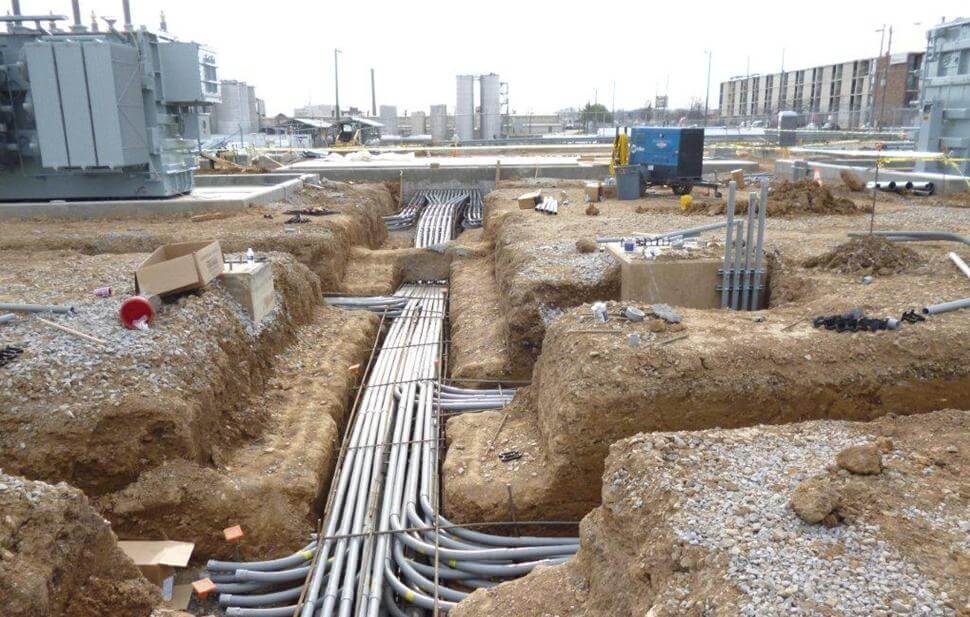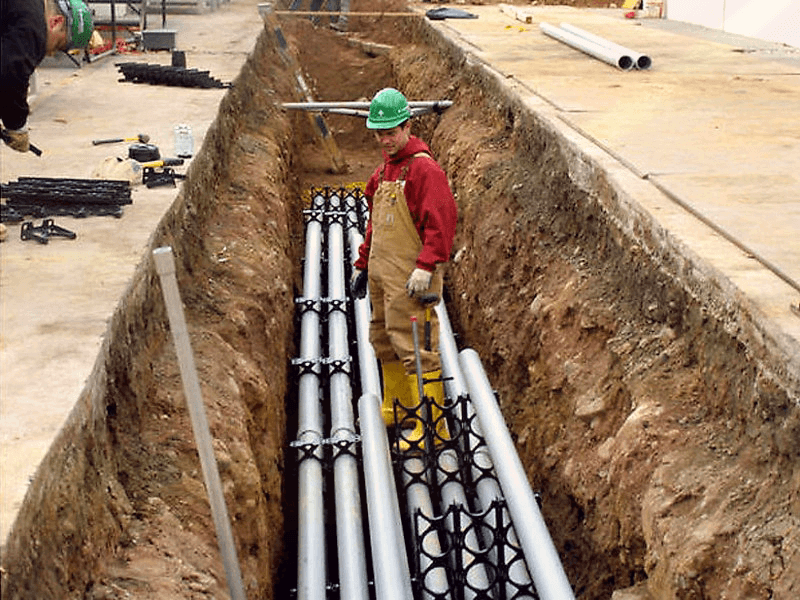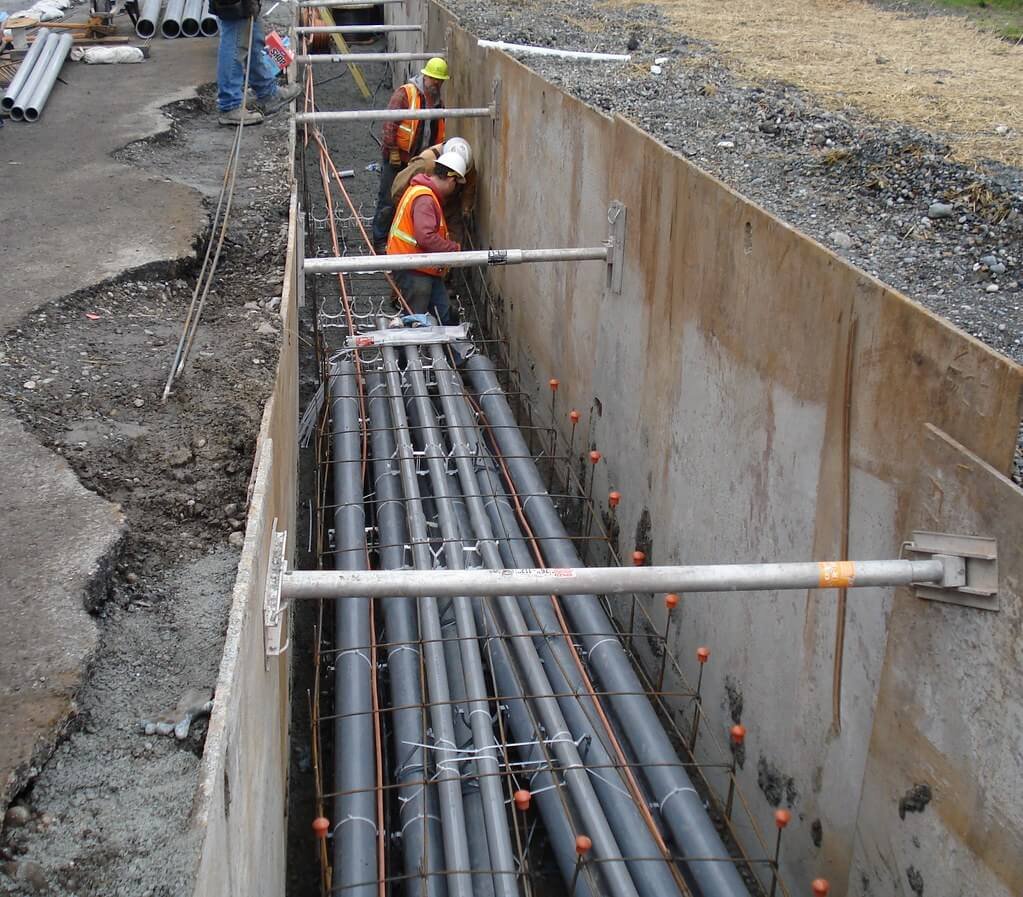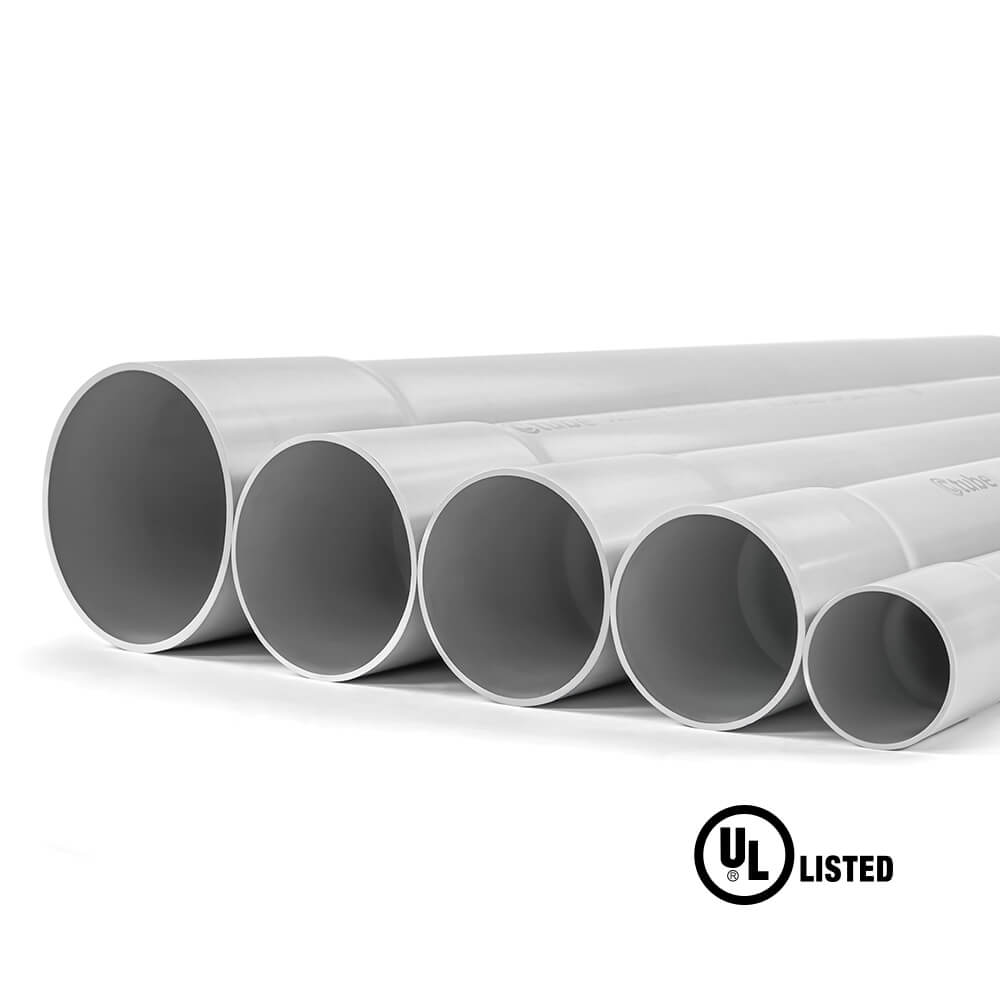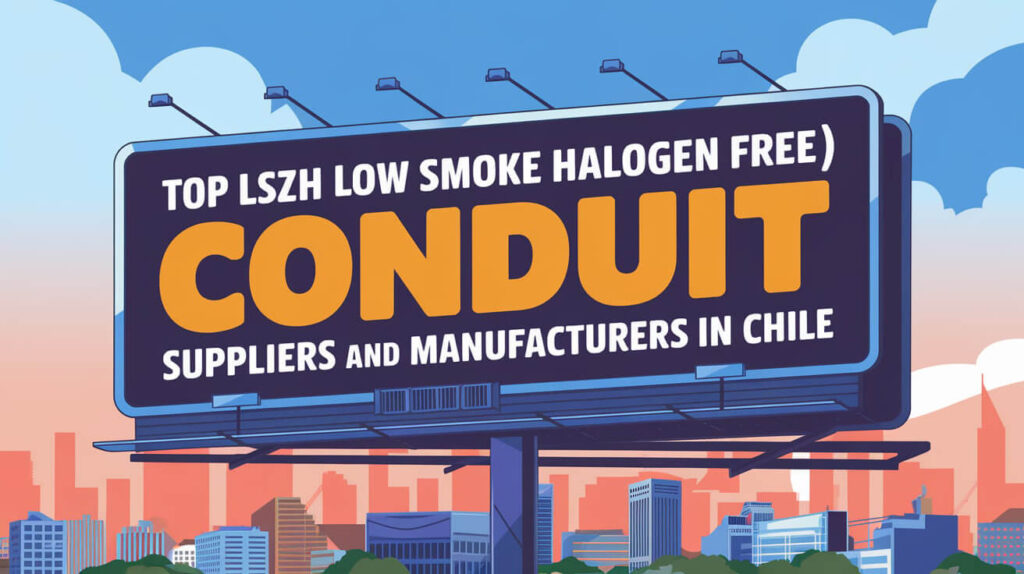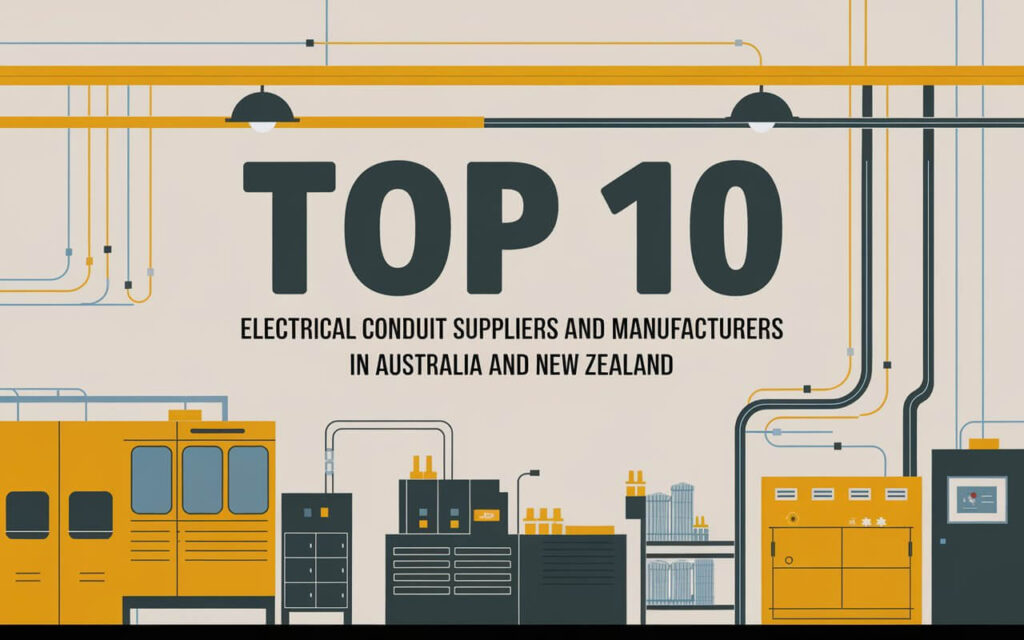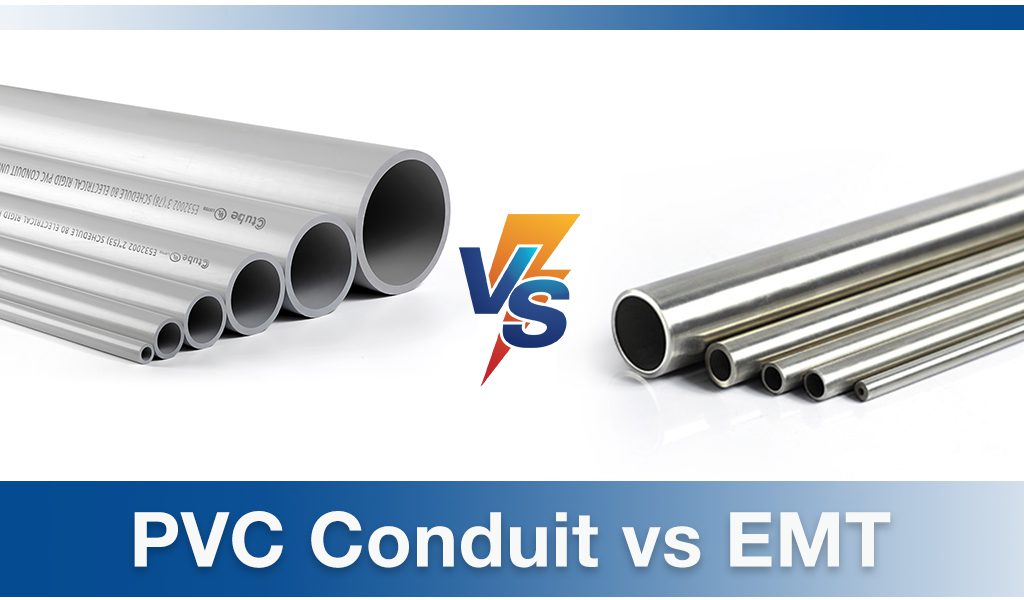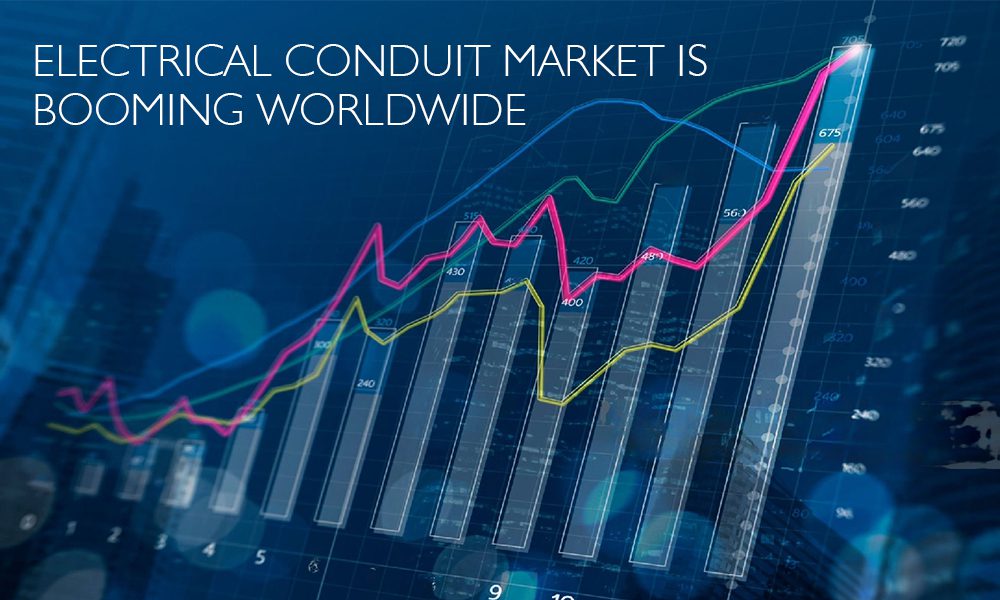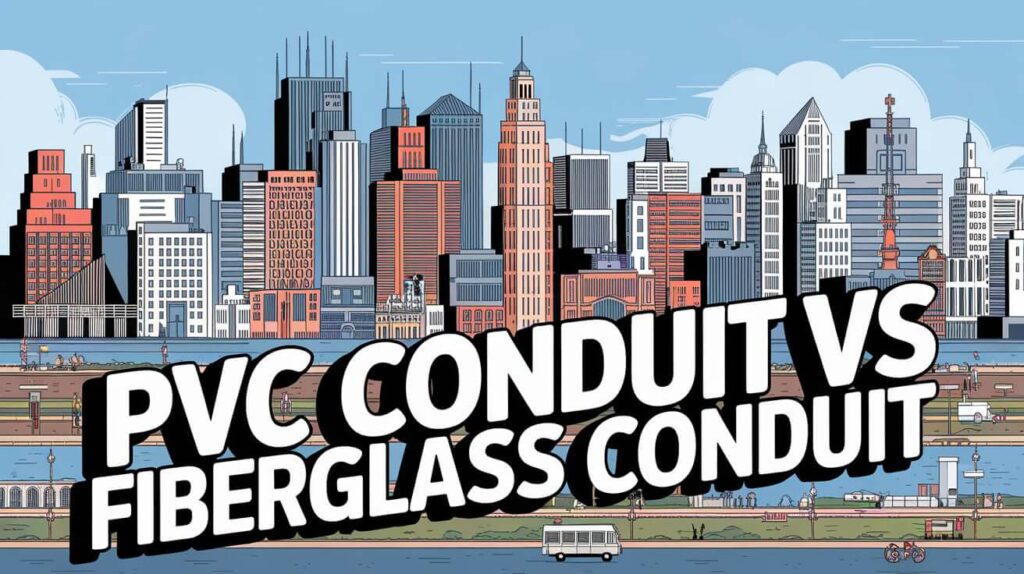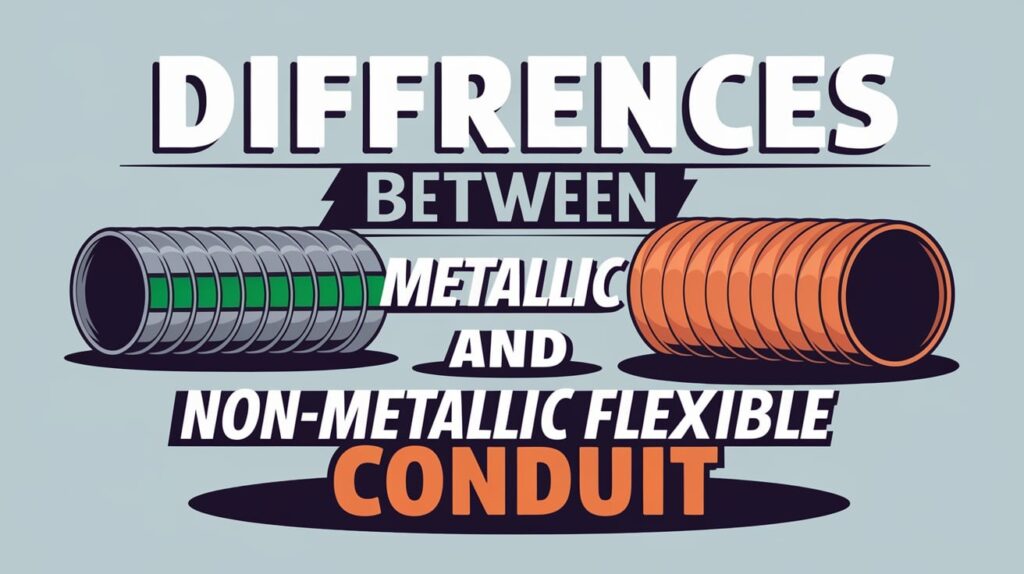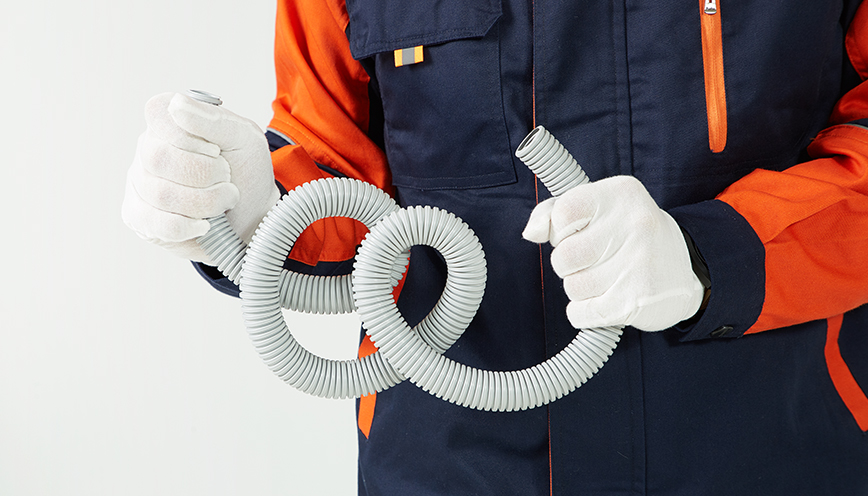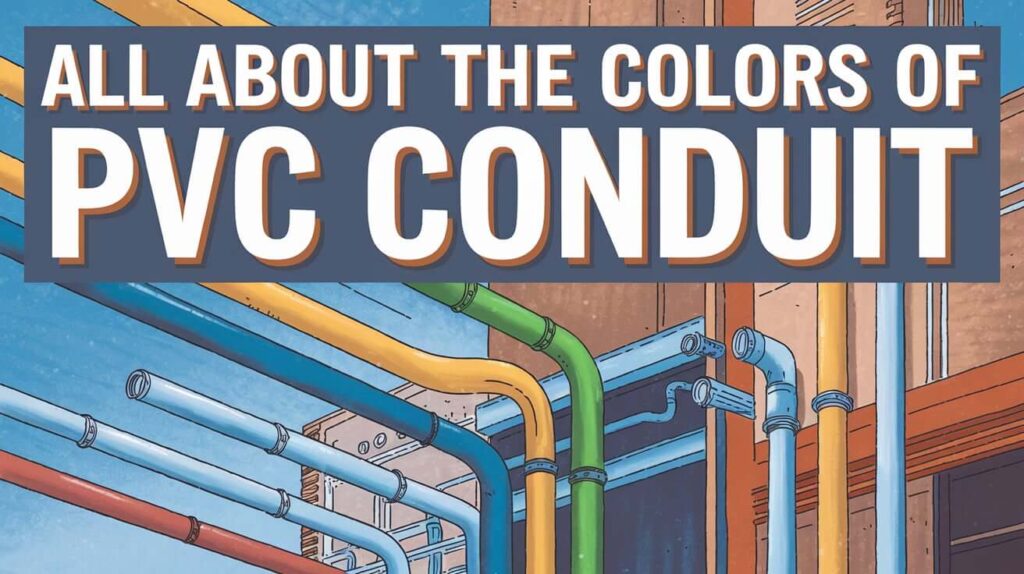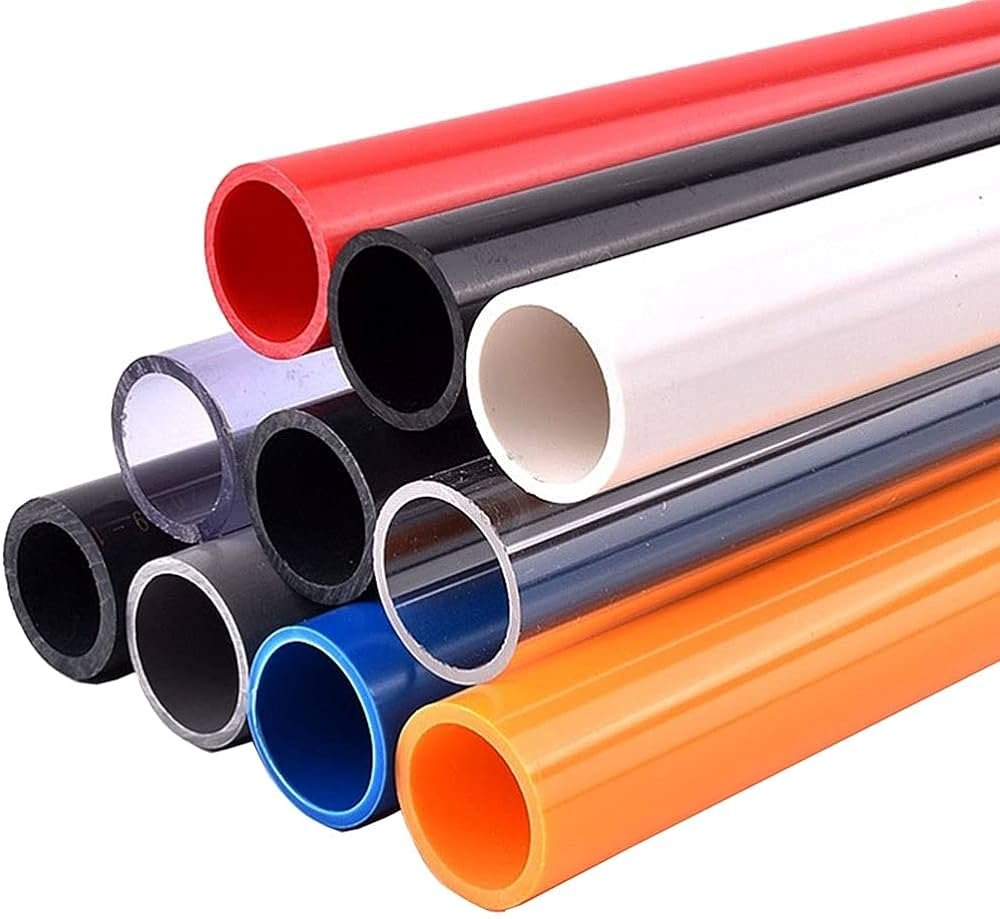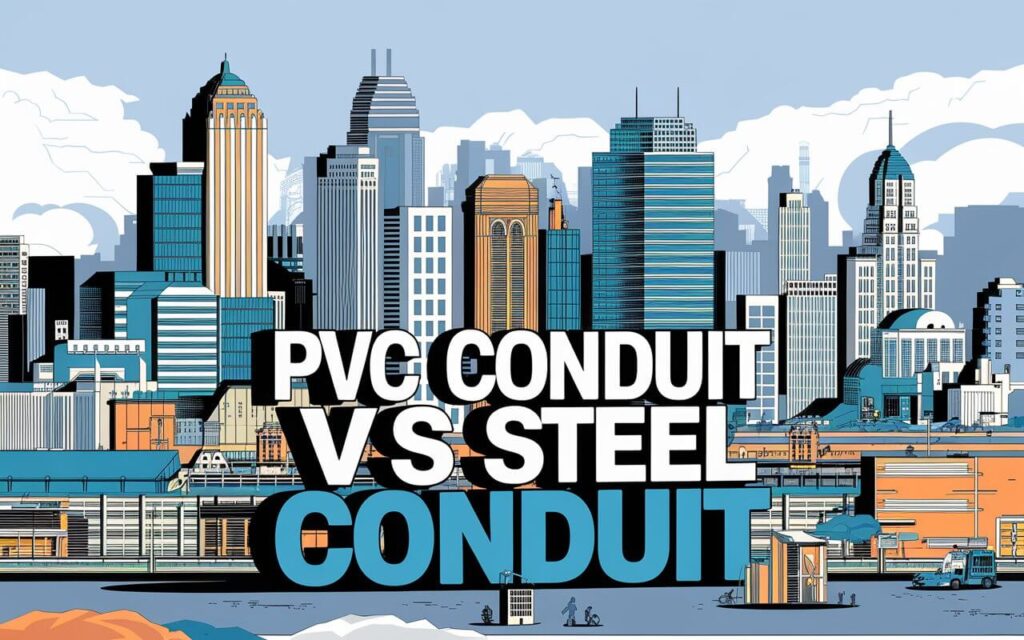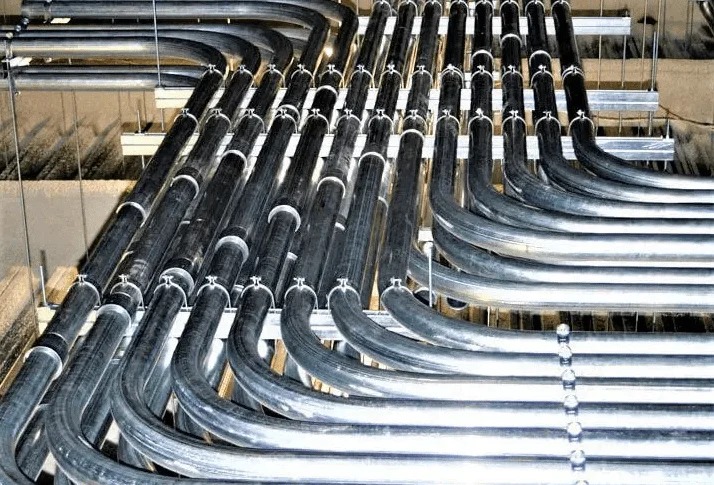Comparative Analysis of Above Ground and Below Ground Electrical Conduit Systems
What is Above Ground Conduit?
References to above ground conduits in this article are to conduits protect electrical installation placed directly on the ground that are not buried in the ground.
Advantages of Above Ground Conduit:
1.Accessibility: One of the primary advantages of above ground conduit is its accessibility. Unlike underground systems, which often require extensive excavation for maintenance or repairs, above ground conduits are easily reachable for inspection and servicing.
2.Cost-effectiveness: The installation of above ground conduit systems can be more cost-effective than their underground counterparts. The elimination of excavation costs and the ease of installation contribute to overall savings in both time and money.
3. Flexibility: Above ground conduits offer greater flexibility in infrastructure planning and modifications. They can be installed in a modular fashion, allowing for easy expansion or reconfiguration as the need arises.
Disadvantages of Above Ground Conduit:
1. If the wiring and original parts are damaged, the conduit placed on the ground is likely to be dangerous and cause injury to people.
2. The above conduit may not provide adequate protection for the electrical wiring because in high-traffic or high-hazard areas, the conduits are more easily to be damaged.
3.Exposed conduit requires higher performance, more rigidity, better resistance to UV light and humidity, etc.
What is Below Ground Conduit?
Below ground conduit, also known as underground conduit, serves various purposes, including conveying water, managing sewage, and transporting natural gas. These conduits are commonly crafted from materials like steel, concrete, or plastic and are strategically buried beneath the surface to shield them from potential damage and minimize disruption to surface activities or structures. In this article we focus on the conduit that protects electrical wiring.
Advantages of Below Ground Conduit:
1.Protection: One of the primary advantages of below ground conduit is its ability to shield utility lines from external elements such as weather, vandalism, and accidental damage. By placing utilities underground, the risk of service interruption due to external factors is significantly reduced.
2.Aesthetics: Below ground conduit systems contribute to the aesthetic appeal of urban landscapes by concealing unsightly utility lines from view. This underground placement helps maintain the visual integrity of streetscapes and public spaces, enhancing the overall ambiance of the built environment.
3.Safety: Underground conduits enhance public safety by minimizing the exposure of utility lines to potential hazards such as vehicle collisions or construction activities. By keeping utilities out of sight and out of harm’s way, below ground conduit systems help mitigate risks to both infrastructure and human life.
4. Space Optimization: In densely populated urban areas where space is at a premium, underground conduits offer a space-efficient solution for utility infrastructure. By utilizing the subsurface environment, below ground conduit systems maximize land use efficiency while minimizing surface disruption.
Disadvantages of Below Ground Conduit:
1. Digging trenches for laying underground conduits is labor-intensive and requires heavy machinery, contributing significantly to project expenses. Accessing and repairing underground infrastructure is costly and often requires specialized equipment and expertise, leading to increased operational costs and prolonged downtime.
2.Maintenance tasks are challenging due to limited accessibility to underground infrastructure. The complexity of underground conduit systems requires careful planning and maintenance strategies to mitigate risks effectively. Repairing underground conduits often requires specialized equipment and expertise, further adding to the overall cost and time of the project.
What is Encased Buried Conduit?
Encased buried conduit, also known as encased conduit or encased duct bank, refers to a system in which underground utility conduits are enveloped within a protective casing or enclosure. This casing, typically composed of concrete or other durable materials, provides an additional layer of insulation and reinforcement, safeguarding the utility lines from external threats such as moisture, soil erosion, and physical damage. In the following, embedded conduits for electrical installations are mentioned.
Advantages of Encased Buried Conduit:
1.Enhanced Protection: The primary advantage of encased buried conduit is its superior protection against environmental hazards and mechanical stresses. By encasing utility conduits within a robust casing, the risk of damage from factors such as groundwater infiltration, soil movement, and construction activities is significantly reduced.
2.Structural Stability: Encased buried conduit systems contribute to the structural integrity of underground utility networks by providing added support and reinforcement. The concrete casing distributes external loads more evenly, minimizing the risk of conduit deformation or collapse under pressure.
3.Longevity: The additional layer of protection afforded by encased buried conduit enhances the longevity and durability of underground utility infrastructure. By shielding utility lines from corrosion, abrasion, and other forms of wear and tear, encased conduit systems help extend the service life of essential services.
What is Direct Buried Conduit?
Direct buried conduit, also known as direct burial or direct burial duct, refers to the method of installing utility conduits directly into the ground without the need for additional encasement or protection. These conduits, typically made of durable materials such as PVC, HDPE, or metal, are buried at a sufficient depth to shield them from external factors and provide a secure pathway for utility transmission.
Advantages of Direct Buried Conduit:
1.Simplified Installation: One of the primary advantages of direct buried conduit is its simplified installation process. By eliminating the need for additional casing or encasement, direct burial systems reduce complexity and streamline deployment, saving both time and labor costs.
2.Cost-effectiveness: Direct buried conduit offers cost savings compared to other underground conduit methods. With fewer materials and less labor required for installation, direct burial systems present a more economical option for deploying utility infrastructure.
3.Space Optimization: Direct buried conduit maximizes land use efficiency by utilizing the subsurface environment for utility transmission. By burying conduits directly into the ground, valuable surface space is preserved, making it ideal for urban environments where space is at a premium.
4.Resilience: Despite its simplicity, direct buried conduit provides adequate protection for utility lines against environmental factors such as soil erosion, temperature fluctuations, and physical damage. The burial depth and choice of materials ensure the durability and resilience of the conduit system over time.
What is the difference between EB and DB conduit?
1. Structural Reinforcement:
– EB Conduit: Encased Buried conduit systems provide structural reinforcement by enveloping utility conduits within a protective casing, typically made of concrete or other durable materials. This additional layer of protection enhances the structural stability of the conduit system, minimizing the risk of deformation or collapse under pressure.
– DB Conduit: In contrast, Direct Buried conduit systems do not feature additional encasement or reinforcement. Utility conduits are buried directly into the ground without additional protection, relying solely on the integrity of the conduit material to withstand external forces.
2. Installation Complexity:
– EB Conduit: Installing Encased Buried conduit systems typically involves more complex procedures due to the need for encasement. This may require additional labor, materials, and specialized equipment, increasing upfront installation costs.
– DB Conduit: Direct Buried conduit systems offer a simpler installation process, requiring less time and resources. Utility conduits are buried directly into the ground at a sufficient depth, reducing the need for additional materials or specialized equipment.
Ctube-UL Listed DB120 PVC Utilites Duct
What types of conduit can be buried?
1.PVC (Polyvinyl Chloride):
– PVC conduit is one of the most commonly used materials for buried conduit systems due to its affordability, durability, and corrosion resistance.
– PVC conduits are lightweight, easy to install, and resistant to chemical and environmental degradation, making them ideal for underground applications.
– However, PVC conduits may be susceptible to impact damage and thermal expansion, requiring careful installation and proper backfilling procedures to prevent deformation or collapse.
2. HDPE (High-Density Polyethylene):
– HDPE conduit is prized for its exceptional strength, flexibility, and resistance to corrosion, abrasion, and chemical exposure.
– HDPE conduits are lightweight, yet durable, and offer superior impact resistance, making them well-suited for buried applications in challenging terrain.
3. Rigid Metal (Steel or Aluminum):
– Rigid metal conduits, such as steel or aluminum, offer robust protection for buried utility lines against mechanical stresses, impact damage, and environmental factors.
– Metal conduits are highly durable and fire-resistant, making them suitable for high-risk environments or areas prone to vandalism or external damage.
– However, metal conduits may be heavier and more labor-intensive to install compared to plastic conduits, requiring specialized equipment and expertise.
Considerations for Buried Conduit Selection
1.Environmental Conditions
When selecting buried conduit materials, it’s essential to consider environmental factors such as soil composition, moisture levels, temperature fluctuations, and chemical exposure. Materials should be chosen based on their resistance to corrosion, abrasion, and degradation in specific soil conditions.
2.Installation Requirements
Different conduit materials may have varying installation requirements in terms of trenching, backfilling, jointing methods, and equipment needs. Proper installation techniques are critical to ensuring the longevity and performance of buried conduit systems.
3.Long-Term Maintenance
Considerations for long-term maintenance, repair, and replacement should also be factored into conduit selection. Materials that offer ease of access for inspection and servicing, as well as resistance to degradation over time, can help minimize lifecycle costs and downtime.
Buried conduit systems are essential components of modern utility infrastructure, providing a secure pathway for the transmission of essential services underground. The selection of conduit materials plays a critical role in determining the reliability, longevity, and performance of underground utility networks. PVC, HDPE, rigid metal, and concrete are among the primary materials used for buried conduit systems, each offering distinct advantages and considerations. By carefully evaluating environmental conditions, installation requirements, and long-term maintenance considerations, infrastructure planners and developers can make informed decisions to ensure the resilience, reliability, and sustainability of buried conduit systems for generations to come.
It must be emphasized that the choice of conduit type must adhere strictly to local electrical codes and regulations, prioritizing safety and compliance with industry standards. Consider conditions such as depth of conduit burial, wall thickness of conduit, etc. Good luck with your electrical installation project!
Comparative Analysis of Above Ground and Below Ground Electrical Conduit Systems 阅读更多 "

